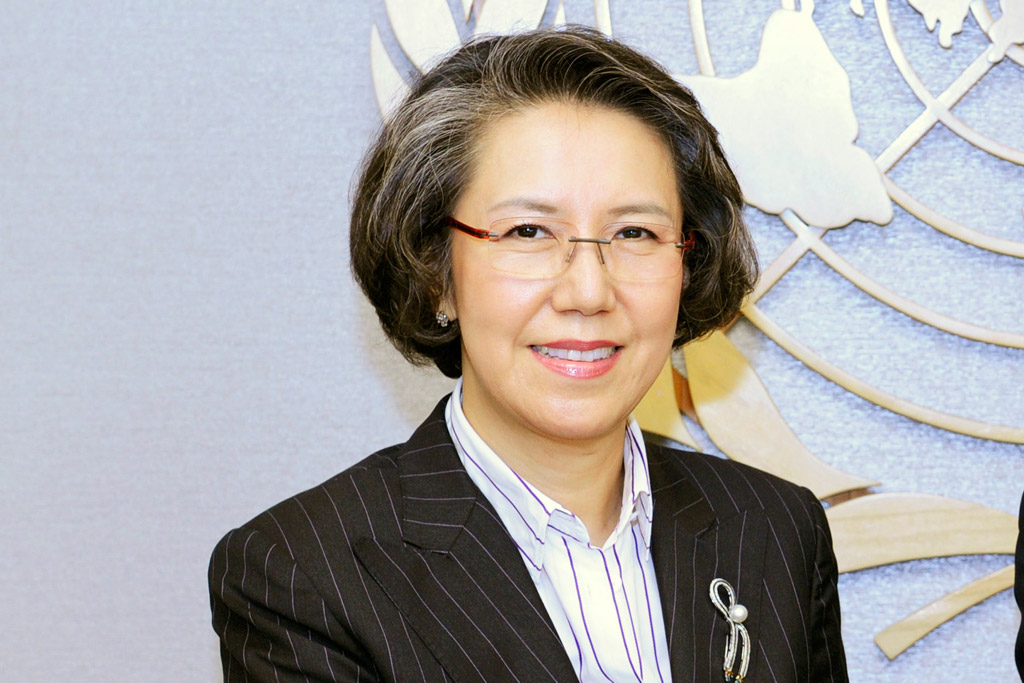New Special Rapporteur, Familiar Human Rights Abuses
By Burma Partnership • July 29, 2014 The new Special Rapporteur on the situation of human rights in Burma, Ms. Yang Hee Lee, concluded her first visit to the country on 27 November, and unsurprisingly, found the human rights situation troubling, warning of the potential of backtracking on initial reforms, an analysis that resonates with many Burma followers. She outlined her initial findings at Rangoon airport in a statement just as she finished her mission, highlighting the shrinking of democratic space, the ongoing religious violence and discrimination, the deteriorating humanitarian conditions for internally displaced persons (IDPs) – especially Muslims – in Arakan State, the severe human rights abuses in Kachin State, the urgent necessity for legislative reform and the rule of law, the lack of involvement of women in both the peace process and governance, the exclusion of local people in large scale development projects and the impact of such projects on vulnerable communities, and the continuing incarceration of political activists, among other issues.
The new Special Rapporteur on the situation of human rights in Burma, Ms. Yang Hee Lee, concluded her first visit to the country on 27 November, and unsurprisingly, found the human rights situation troubling, warning of the potential of backtracking on initial reforms, an analysis that resonates with many Burma followers. She outlined her initial findings at Rangoon airport in a statement just as she finished her mission, highlighting the shrinking of democratic space, the ongoing religious violence and discrimination, the deteriorating humanitarian conditions for internally displaced persons (IDPs) – especially Muslims – in Arakan State, the severe human rights abuses in Kachin State, the urgent necessity for legislative reform and the rule of law, the lack of involvement of women in both the peace process and governance, the exclusion of local people in large scale development projects and the impact of such projects on vulnerable communities, and the continuing incarceration of political activists, among other issues.
We welcome Ms. Lee’s open and honest discussion of the term “Rohingya” and her pledge to be guided by international human rights law as regards the use of this term. This was despite the insistence of government officials not to use the word “Rohingya” throughout her trip to Arakan State. On the basis of this principled stance, we are reassured that Ms. Lee will not flinch from using the term when appropriate in the future. After visiting two camps for IDPs, one for Arakan Buddhists and one for Rohingya Muslims, Ms. Lee was troubled by both the terrible conditions in the camps and the lack of humanitarian access that is resulting in people dying due to insufficient medical assistance. She also acknowledged that this situation is “undeniably worse” in the camp for Rohingya. While she did not explicitly state that this is a situation engineered and maintained by the authorities, it is obvious that the unequal treatment of Buddhist and Muslim IDPs is a deliberate policy by the government that further punishes the Rohingya simply due to their ethnicity.
It is also welcomed that she visited Kachin State, and areas where the Burma Army continues to launch offensives against the Kachin Independence Army (KIA), committing severe human rights violations, including sexual assault, torture and extrajudicial killings against Kachin civilians. While she acknowledges that both sides have committed human rights violations, we feel it is important to clarify that the majority and the most serious of these are being committed by the Burma Army rather than the KIA.
Related to the peace process is the issue of refugee camps along the Thailand-Burma border, who are becoming increasingly anxious over their fate given the recent political developments in Thailand, ration cuts from the donor community, the seemingly dominant narrative that it is time for refugees to return to Burma, all in the context of lack of transparency from the influential actors involved. It is hoped that this issue will be raised in Ms. Lee’s statement to the UN General Assembly later this year, as the current conditions are not yet right for return, with the refugees themselves remaining vulnerable and stateless. The peace process is still fragile and has not produced the necessary outcomes to lay the foundations for an environment in which people can return safely and with dignity, and so any future repatriation must only happen on a voluntary basis and following full consultation with and participation of the refugees themselves.
Finally, we commend Ms. Lee for her explicit commitment to be guided by the work of her predecessor, Mr. Tomás Ojea Quintana, stated in the conclusion to her statement. It is vital that Mr. Quintana’s many years of distinguished work, exhaustively monitoring the challenging human rights situation in Burma and providing robust and principled recommendations, are not lost in the recent handover. This statement clearly recognises the importance of continuity, the indication being that Ms. Lee fully intends to build upon Mr. Quintana’s work while putting her own impressive professional experience and personal judgment to good use for the benefit of the people of Burma. We wish her all the best and hope that the international community uses her work to be better informed about the human rights situation in Burma and influence their current engagement with the Burma government to place the human rights of the people of Burma as a priority before investment and business interests.
Tags: Arakan/Rakhine, Buddhism, Burma Army, Burma Partnership, Government of Myanmar, Human Rights, Human Rights Violations, IDPs, Kachin, Kachin Independence Army, Ms. Yang Hee Lee, Muslims, Peace Process, Refugees, Rohingya, Thailand, Tomas Ojea Quintana, UN General AssemblyThis post is in: Blog
Related PostsMyanmar: Free Prisoners of Conscience in Rakhine State End Ongoing Persecution of Rohingya
UN Myanmar Rights Expert: Backtracking on Democratic Space Gains Momentum in Election Year
Myanmar’s Proposed Race and Religion Laws are Discriminatory and should be Scrapped
The FCO’s Human Rights Work 2013
BROUK Welcomes US Senate Resolution on Rohingya









 All posts
All posts